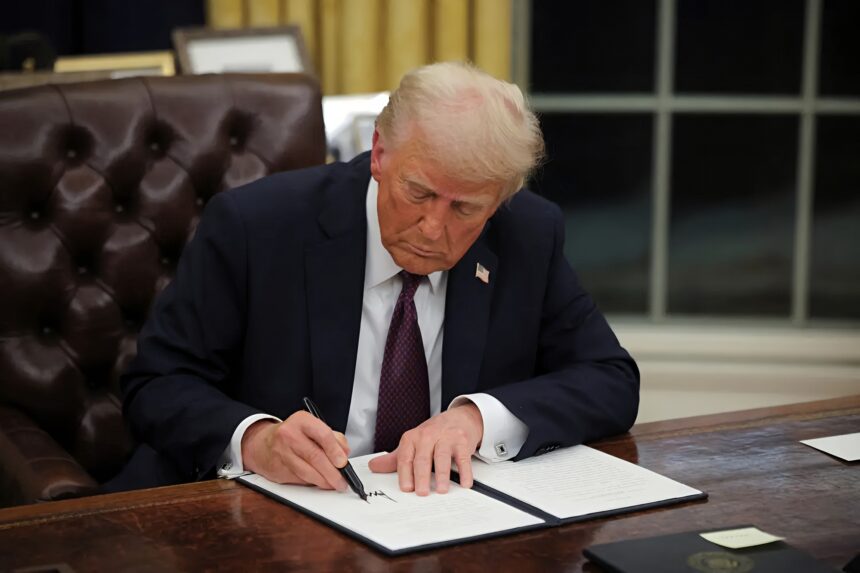United States President Donald Trump has signed a bill compelling the Department of Justice (DOJ) to release the files of the late convicted sex offender, Jeffrey Epstein.
The presidential signing initiates a 30-day countdown for the public disclosure of the long-awaited Epstein files.
“I HAVE JUST SIGNED THE BILL TO RELEASE THE EPSTEIN FILES!” Trump wrote in a lengthy message on the Truth Social platform. “As everyone knows, I asked Speaker of the House Mike Johnson and Senate Majority Leader John Thune to pass this Bill in the House and Senate, respectively. Because of this request, the votes were almost unanimous in favor of passage.
“At my direction, the Department of Justice has already turned over close to fifty thousand pages of documents to Congress. Do not forget — The Biden Administration did not turn over a SINGLE file or page related to Democrat Epstein, nor did they ever even speak about him.”
Trump’s assent to the bill to release Epstein files came after the bill was passed by both the U.S House of Representatives and Senate.
The bill mandates the Attorney General to make all unclassified records, documents, communications, and investigative materials from multiple federal investigations into Epstein publicly available.
This includes files related to his longtime associate Ghislaine Maxwell, as well as flight logs and internal communications about charging decisions and Epstein’s 2019 death in a Manhattan jail cell.
However, files that include victims’ names, child sex abuse materials, classified materials, or other materials that could threaten an active investigation may be withheld or redacted by the DOJ.
The U.S House of Representatives had voted for the release of the Epstein files on Tuesday by a 421–1 margin.
Rep. Clay Higgins, R-La., was the only House member to vote against the release, and said he didn’t back the measure because “this bill reveals and injures thousands of innocent people — witnesses, people who provided alibis, family members, etc.”
Although Speaker of the House Mike Johnson, R-La., voted in favor of the measure, he also voiced similar concerns during a Tuesday press conference.
He asked: “Who’s going to want to come forward if they think Congress can take a political exercise and reveal their identities? Who’s going to come talk to prosecutors? It’s very dangerous. It would deter future whistleblowers and informants.
“The release of that could also publicly reveal the identity, by the way, of undercover law enforcement officers who are working in future operations.”
After the House approved the measure, the bill headed to the Senate and was passed hours later on Tuesday by unanimous consent.
Pan-Atlantic Kompass reports that the decision of Trump to sign the bill seeking the release of Epstein files comes after reports of alleged ties to the late sex offender came into the limelight.
Trump had faced increased attention after the Justice Department and the FBI announced in July that they would not unseal investigation materials related to Epstein, and that the agencies’ investigation into the case had closed.
But on Sunday, Trump announced that he backed releasing the documents, asserting that he had “nothing to hide.”
“As I said on Friday night aboard Air Force One to the Fake News Media, House Republicans should vote to release the Epstein files, because we have nothing to hide, and it’s time to move on from this Democrat Hoax perpetrated by Radical Left Lunatics to deflect from the Great Success of the Republican Party, including our recent Victory on the Democrat ‘Shutdown,'” Trump wrote.
Epstein died by suicide in 2019 as he was awaiting trial on federal charges. Maxwell was convicted on charges including sex trafficking of a minor and is currently serving a 20-year sentence.





